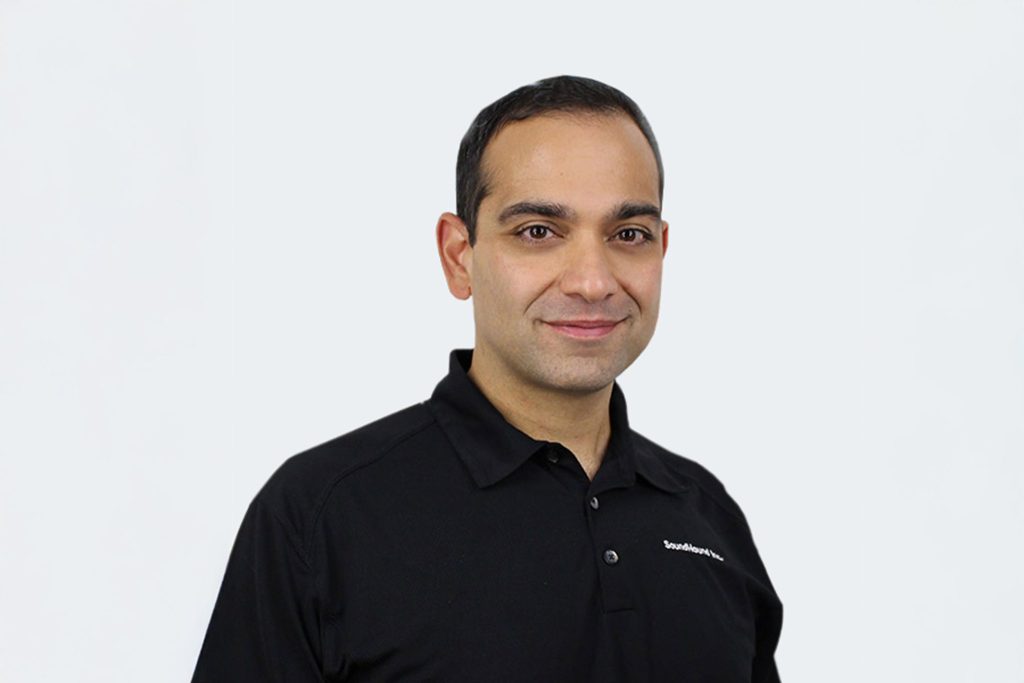- SoundHound AI CEO Keyvan Mohajer built his Star Trek-inspired $6.5 billion company in his Stanford dorm room—but even before then, he already had three software startups under his belt. They weren’t all unicorns, but the willingness to pursue big ideas despite the risk of failure is a lesson Gen Z founders can embrace, he tells Fortune.
As someone who immigrated from Iran at age 17 knowing little English, becoming a tech entrepreneur one day may have seemed like a far-fetched dream. But Keyvan Mohajer always kept the mindset: You cannot hit big unless you try.
And try he did. By the time he walked across the stage at the University of Toronto to receive his bachelor’s degree in engineering, Mohajer already had three software companies to his name. Each later became profitable and helped seed the voice-AI project he began in his Stanford dorm room in 2004—which evolved into SoundHound AI.
Today, the AI-voice communication company is worth more than $6.5 billion and has landed deals with clients including Nvidia, Snapchat, Mercedes-Benz, and more.
For Mohajer, who serves as CEO, failure has only ever served as motivation. And, it’s a lesson Gen Z eager to launch side gigs can learn from: The willingness to go out on a limb and build a company from scratch may sound intimidating—but it only takes one good idea to explode into major success.
“Every attempt, you should think of it as this is the one that’s going to succeed… Because if you just throw darts randomly at the target, for every attempt, there is the one that’s going to get the bullseye,” Mohajer tells Fortune.
From dorm room to the boardroom
Mohajer grew up always fascinated by two things: movies and robots. So, after first seeing Star Trek, he always dreamed of how to bring computerized voice systems into the real world. But only after meeting his later cofounders, James Hom and Majid Emami, during his Stanford electrical engineering doctoral program did he realize he could be part of the team to make it a reality.
Their first product was simple: query by humming. Two weeks prior to Christmas, the team didn’t leave their dorm room until they could build a product that could take their database of 20,000 media files and detect what song was being hummed. But by December 24, the code was cracked.
“It was on Christmas Eve that I finally hummed this Godfather soundtrack, and it told me, ‘You’re singing The Godfather,’” he said to the Iranian Students of California’s The Tale of a Success series.
His pitch to investors became simple: AI-powered voice is the future. “In 20 years we will talk to computers and they will talk back to us and that will change computing.”
And while it took years for SoundHound to get up off the ground, he tells Fortune finding his passion, or what makes his “heart beat faster,” has been core to his success today.
“You can do things and go through life and get by and check boxes and be average,” he says. “But I really wanted to be excellent, and I wanted to push boundaries. I want to go to places others haven’t gone before, and that gave me the drive to be an entrepreneur and just push the limits and combining the two.”
While SoundHound’s market performance has had dramatic ebbs and flows, the stock price is up over 200% in the past year. This is thanks in part to a better-than-expected earnings report from earlier this month; the company’s revenue is up 217% year-over-year. Its market cap is over $6.5 billion.
Founders who got their start in the dorm room
At a time when college students are questioning the value of a degree, SoundHound’s founding story is another reminder of the innovation that often spurs across college campuses—even if it is just from cofounders meeting for the first time.
Companies such as Databricks, a $62 billion data software company, as well as Google, worth over $2.4 trillion, also planted roots in college. Both sets of founders met on Stanford’s campus.
But there perhaps is no more famous company that spurred from the college experience than Facebook. Mark Zuckerberg met his cofounders, Eduardo Saverin, Dustin Moskovitz, and Chris Hughes at Harvard University and built the foundation of the social platform now known as Meta (now worth nearly $2 trillion).
The billionaire returned to his alma mater in 2017 and said he never expected to be such an entrepreneurial success story.
“The thing is, it never even occurred to me that someone might be us,” Zuckerberg said. “We were just college kids. We didn’t know anything about that. There were all these big technology companies with resources. I just assumed one of them would do it.”
“We’ve all started lifelong friendships here, and some of us even families,” he added. “That’s why I’m so grateful to this place. Thanks, Harvard.”
This story was originally featured on Fortune.com







